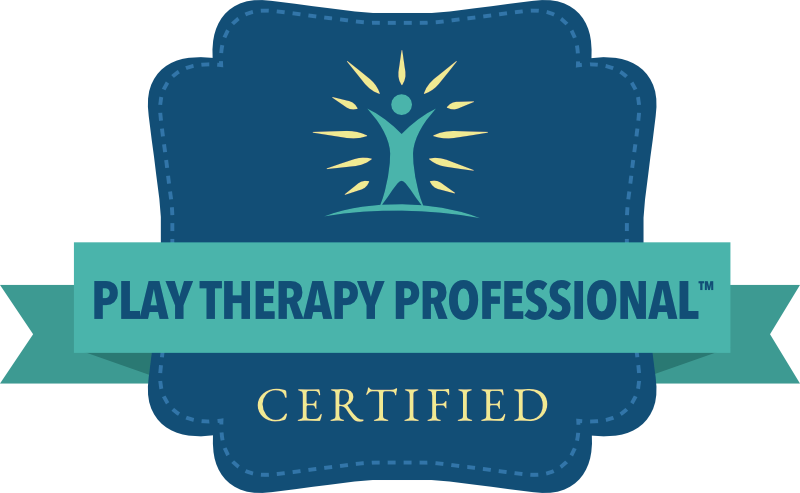Beyond Techniques: Cultivating the Therapist’s Personality for CCPT Success
In this episode of the Play Therapy Podcast, I continue our summer school series on the essential personality characteristics of effective play therapists. We dive into the second and third principles: unconditional acceptance and creating safety and permissiveness in the relationship, from Garry Landreth’s book “Innovations in Play Therapy.”
I discuss how unconditional acceptance involves experiencing unqualified acceptance of the child without wishing they were different. This requires patience, flexibility, and creativity from the therapist. I discuss the importance of avoiding judgment, welcoming the child’s choices, and meeting them where they are. I emphasize the need to have goals and ideas for therapy without holding specific expectations that could lead to disappointment.
The third principle focuses on creating a feeling of safety and permissiveness in the therapeutic relationship. I explain how this allows children to explore and express themselves fully. We examine the importance of being predictable, steady, consistent, and honest as therapists. I highlight key traits like being patient, friendly, calm, self-confident, and in control to provide emotional safety for the child.
Throughout the episode, I stress the significant role our personalities play in child-centered play therapy and the importance of developing these essential characteristics to create successful therapeutic relationships with children.
Episode Reference:
Landreth, G. L. (Ed.). (2001). Innovations in play therapy: Issues, process, and special populations. Brunner-Routledge.
Sign up for my exclusive newsletter at playtherapynow.com. Stay ahead with the latest CCPT CEU courses, personalized coaching opportunities and other opportunities you need to thrive in your CCPT practice!
Ask Me Questions: Call (813) 812-5525, or email: [email protected]
Brenna’s CCPT Hub: https://www.playtherapynow.com
CCPT Collective (online community exclusively for CCPTs): https://www.ccptcollective.com
Podcast HQ: https://www.playtherapypodcast.com
APT Approved Play Therapy CE courses: https://childcenteredtraining.com
Twitter: @thekidcounselor https://twitter.com/thekidcounselor
Facebook: https://facebook.com/playtherapypodcast
Mastering Essential Personality Traits for Effective Child-Centered Play Therapists
As child-centered play therapists, our personalities play a crucial role in the success of our therapeutic relationships. In this post, we’ll explore two fundamental principles that shape our effectiveness: unconditional acceptance and creating safety and permissiveness in the relationship. These principles, drawn from the “Innovations in play therapy: Issues, process, and special populations” book edited by Landreth, 2001, are essential for every play therapist to understand and embody.
Principle 2: Unconditional Acceptance
The second principle states that “the therapist experiences unqualified acceptance of the child and does not wish that the child were different in some way.” (Landreth, 2001.) This concept of unconditional acceptance is foundational to our work as play therapists. But what does it look like in practice?
Demonstrating Respect and Neutrality
As play therapists, we must maintain a warm, steady, and friendly relationship with the child. This involves:
- Staying neutral
- Accepting the child exactly as they are
- Avoiding judgment or evaluation of the child’s behavior, both positively and negatively
It’s important to note that avoiding positive judgment can be just as challenging as avoiding negative judgment. Our goal is to react to the child with interest and encourage full expression of feelings without attaching value judgments.
Conveying Acceptance Through Action
We convey acceptance through three key concepts:
- Patience
- Flexibility
- Creativity
These traits allow us to adjust and adapt to the unexpected situations that often arise in the playroom. Children are unpredictable, and we must be prepared to handle whatever comes our way.
Welcoming the Child’s Choices
Unconditional acceptance means welcoming the child’s choices, whether they decide to play or not to play, talk or not to talk. The child doesn’t need to change or behave in any particular way to receive our acceptance. As therapists, we resist imposing any conforming behavior on the child.
Goals vs. Expectations
A crucial distinction in our work is the difference between having goals or ideas and having expectations. As the book states:
“The therapist may have goals or ideas but does not have expectations regarding the child.” (Landreth, 2001.)
This is because expectations can easily lead to disappointment, which may be unintentionally conveyed to the child. Instead, we strive to meet the child where they are at the moment and move with them.
Principle 3: Creating Safety and Permissiveness
The third principle focuses on creating “a feeling of safety and permissiveness in the relationship so that the child feels free to explore and express self completely.” (Landreth, 2001.) This principle emphasizes the importance of the therapeutic relationship in facilitating the child’s self-expression.
Building a Safe and Comfortable Relationship
As play therapists, we are tasked with creating a relationship where the child feels:
- Protected
- Liked
- Respected
These feelings, especially being liked and respected, are often rare experiences for children in their daily lives.
The Power of Predictability
Children gain a sense of security from the predictability of both the therapist and the therapeutic hour. This is why consistency is so crucial in our practice. We use the same phrases, follow the same routines, and maintain a consistent structure in our sessions. This predictability helps children feel safe and secure.
Essential Therapist Traits
To create safety and permissiveness, the therapist must be:
- Patient
- Friendly
- Calm
- Self-confident
- In control
These traits increase a child’s confidence and encourage open expression of emotions and thoughts. It’s important to remember that a child will withhold comments until they are sure the therapist understands and can be trusted.
Furthermore, a therapist who is patient, friendly, calm, self-confident, and in control provides the child with protection and emotional safety. These five traits should be our top priority to develop and maintain as child-centered play therapists.
Balancing Permissiveness and Limits
Permissiveness in play therapy is defined as the “total acceptance of all symbolic behavior, whether constructive or destructive.” (Landreth. 2001.) However, this doesn’t mean we never set limits. When aggressive or destructive behavior needs to be limited, we acknowledge and accept the child’s desire to engage in such activities while providing acceptable alternatives for expressing those feelings.
Communicating Permissiveness
We communicate permissiveness through our:
- Attitude toward the child
- Tone of voice
- Actions
As therapists, we grant the child the right to choose – they may talk or be silent, use or not use the playroom materials. We do not push, control, or attempt to change the child in any way.
These principles of unconditional acceptance and creating safety and permissiveness are fundamental to our effectiveness as child-centered play therapists. They require us to develop specific personality traits and approaches that may not come naturally to everyone. However, by working on these characteristics, we can create the kind of therapeutic relationship that allows children to fully explore and express themselves.
Remember, our role as play therapists is far more complex than simply watching a child play. Our own personalities and how we embody these principles play a crucial role in the success of the therapeutic process. By striving to incorporate these principles into our practice, we can provide the best possible support for the children we work with.








